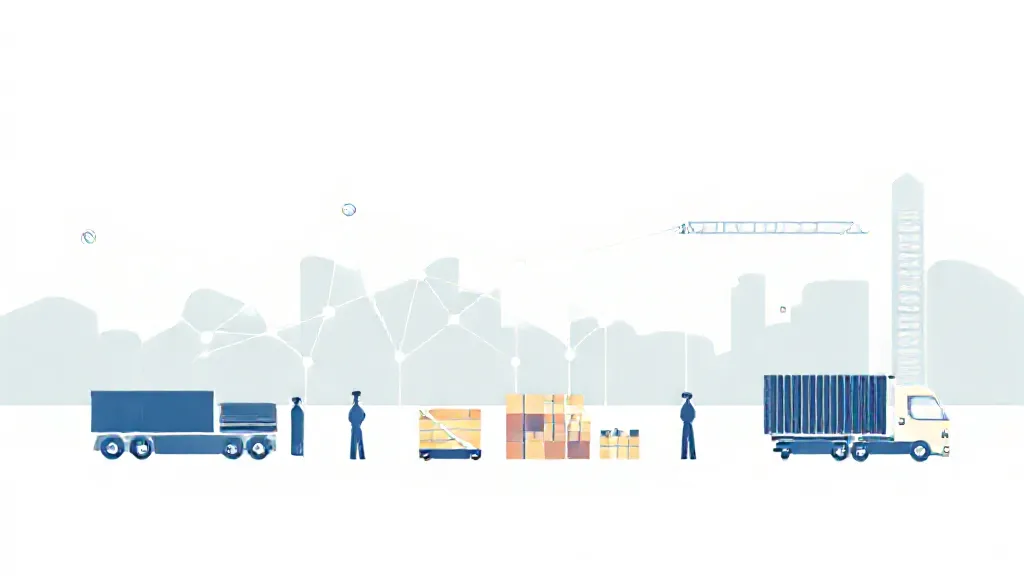The rise of blockchain technology has sparked significant interest across various sectors, particularly in supply chain management. Traditional supply chains often suffer from inefficiencies, lack of transparency, and difficulties in tracking products from origin to consumer. Blockchain offers a decentralized, immutable ledger that can address these challenges, providing a new paradigm for supply chains.
Understanding Blockchain Basics
To appreciate how blockchain can revolutionize supply chains, it's essential to understand its fundamental principles. Blockchain is a distributed ledger technology that records transactions across multiple computers. This decentralization ensures that no single entity has control over the entire database, making it nearly impossible to alter past records without consensus from all participants.
Each transaction is securely encrypted, and once recorded, it cannot be changed or deleted, which enhances data integrity.
Enhancing Transparency and Traceability
One of the most significant advantages of blockchain in supply chains is its ability to enhance transparency and traceability. With blockchain, every transaction involving a product can be recorded on the ledger, creating a complete, unalterable history of that product.
For instance, in the food industry, blockchain can track a product from farm to table, allowing consumers to verify its origin and safety. This level of transparency not only builds consumer trust but also enables companies to quickly address issues such as recalls or contamination, minimizing risks and losses.
Reducing Fraud and Counterfeiting
Fraud and counterfeiting are persistent issues in many supply chains, particularly in industries like pharmaceuticals and luxury goods.
Blockchain can significantly reduce these risks by providing a secure and verifiable record of ownership and authenticity. For example, luxury brands can use blockchain to certify the authenticity of their products, ensuring that consumers are purchasing genuine items. This capability not only protects consumers but also helps companies safeguard their brand reputation and financial interests.
Streamlining Processes and Reducing Costs
In addition to enhancing transparency and security, blockchain can streamline supply chain processes, resulting in reduced operational costs. By automating processes through smart contracts—self-executing contracts with the terms of the agreement directly written into code—companies can eliminate the need for intermediaries. This automation can lead to faster transactions, fewer errors, and lower costs associated with manual processing.
For instance, a shipping company could automate customs clearance through smart contracts, significantly speeding up the delivery process.
Improving Collaboration Among Stakeholders
Blockchain fosters improved collaboration among various stakeholders in the supply chain. With a shared, real-time view of transactions, all parties—from suppliers to manufacturers to retailers—can work together more effectively.
This collaboration can lead to better demand forecasting, inventory management, and overall supply chain efficiency. For instance, companies like IBM and Maersk are already leveraging blockchain to enhance collaboration in shipping, resulting in reduced delays and improved customer satisfaction.
Case Studies: Real-World Applications
Several companies have begun implementing blockchain solutions in their supply chains, showcasing the technology's potential.
Walmart, for example, has adopted blockchain to trace the provenance of its food products, significantly reducing the time needed to track down sources of contamination. Similarly, De Beers uses blockchain to track diamonds from the mine to the retailer, ensuring that they are conflict-free. These case studies highlight how blockchain can lead to safer, more transparent supply chains.
Challenges and Considerations
Despite its many benefits, the integration of blockchain into supply chains is not without challenges. Issues such as scalability, interoperability with existing systems, and regulatory considerations must be addressed. Additionally, the initial investment in technology and training can be a barrier for some companies.
However, as the technology matures and more businesses adopt blockchain, these challenges are likely to diminish, paving the way for broader implementation.
The Future of Supply Chains with Blockchain
Looking ahead, the potential for blockchain to revolutionize supply chains is immense. As technology continues to evolve, we can expect to see more innovative applications that further enhance efficiency, transparency, and security.
The ongoing development of industry standards and collaboration among stakeholders will be crucial in realizing the full potential of blockchain in supply chain management. In conclusion, blockchain technology stands poised to transform supply chains, offering solutions to long-standing challenges and setting the stage for a new era of operational excellence.
